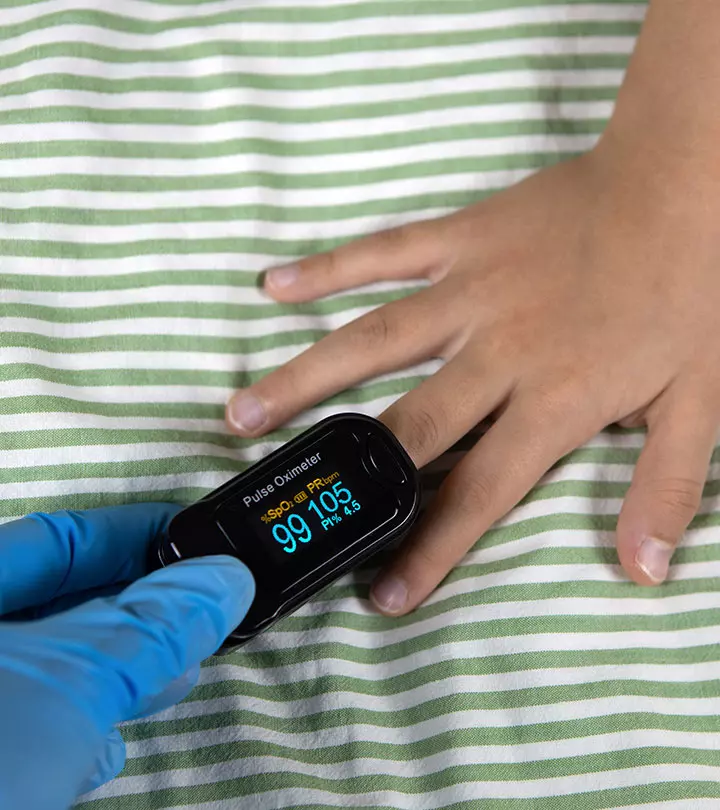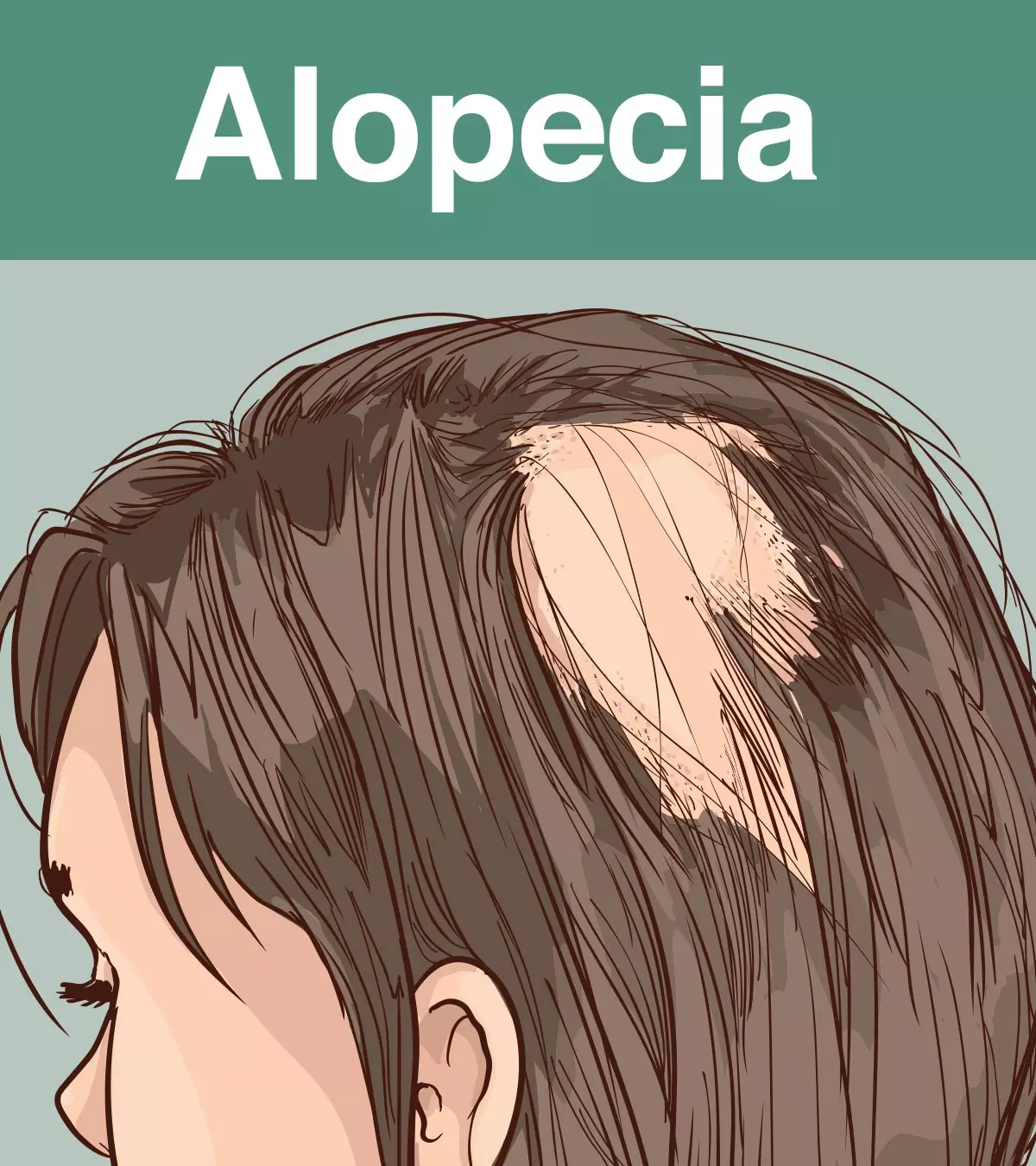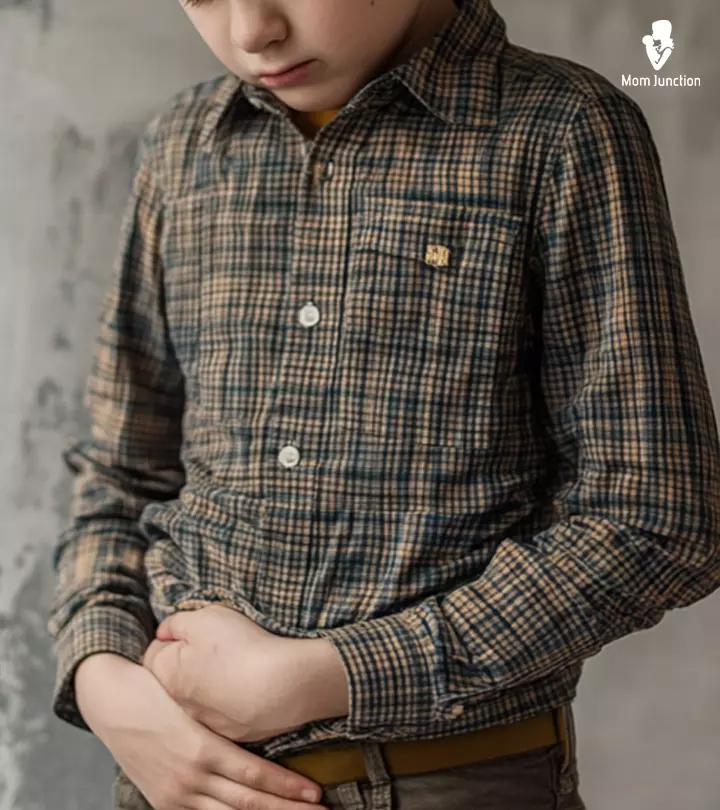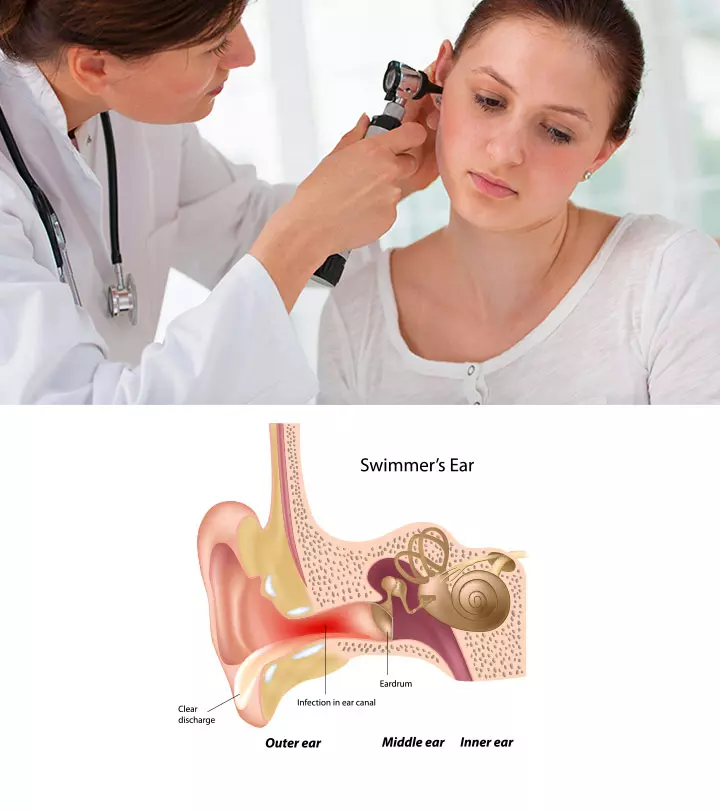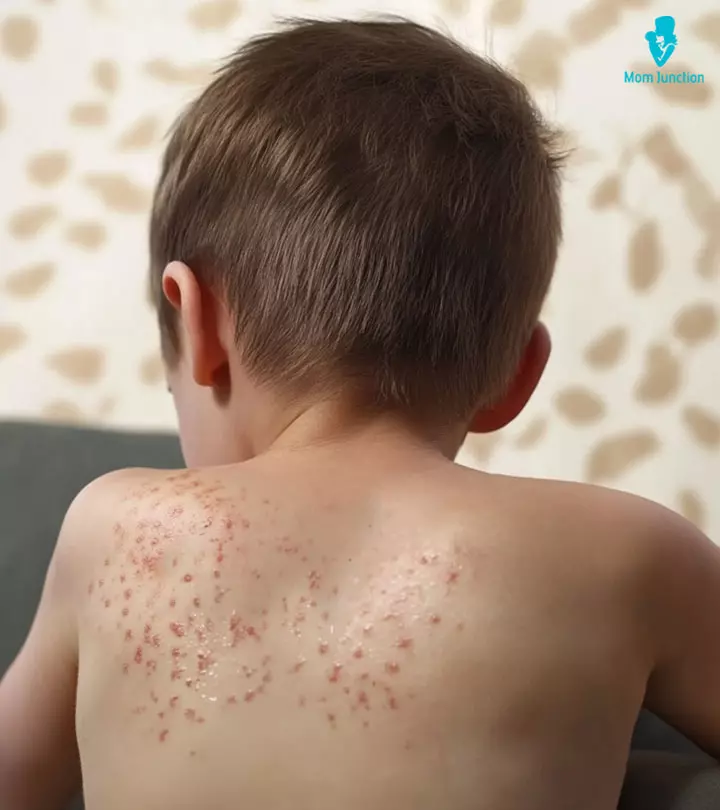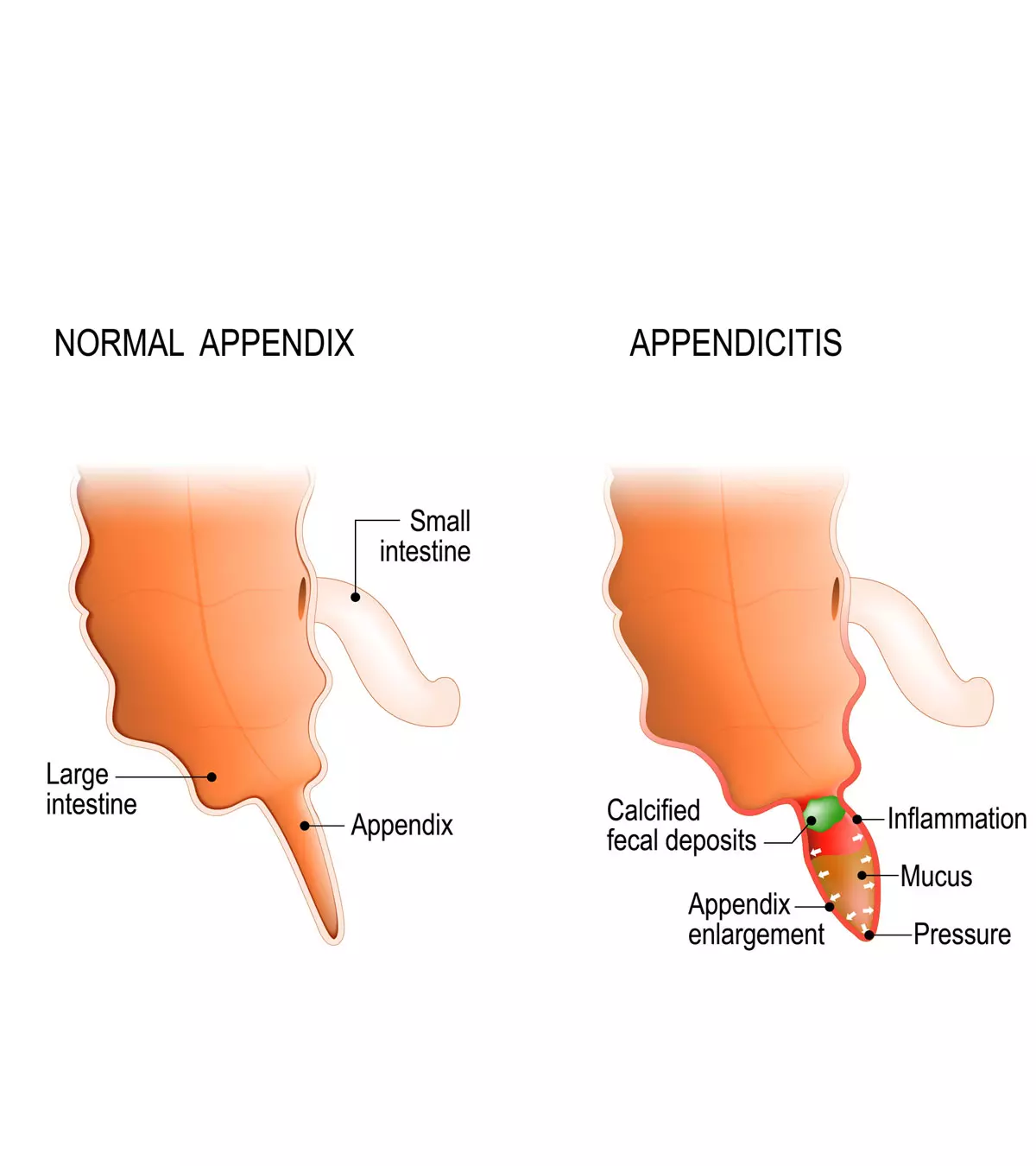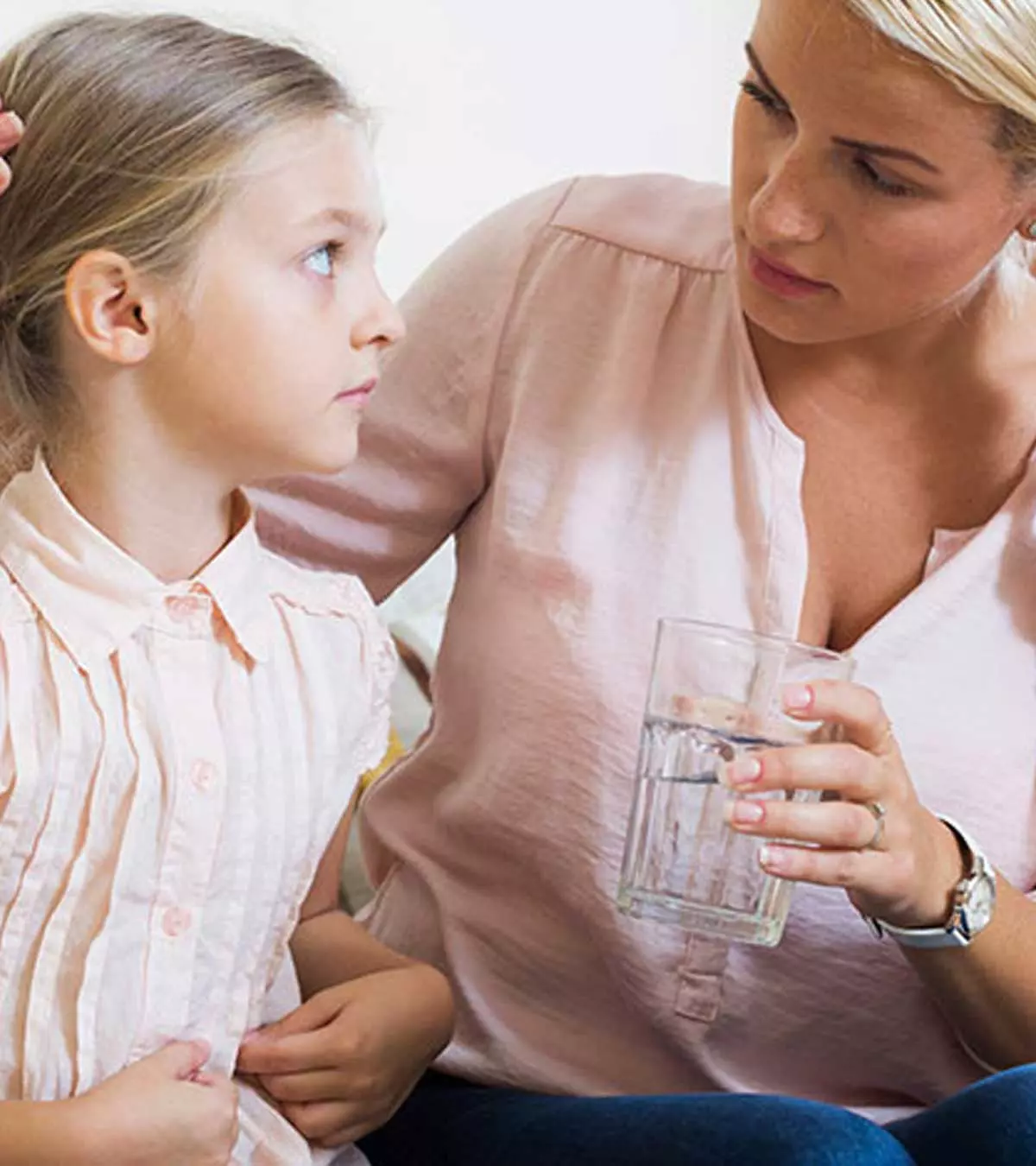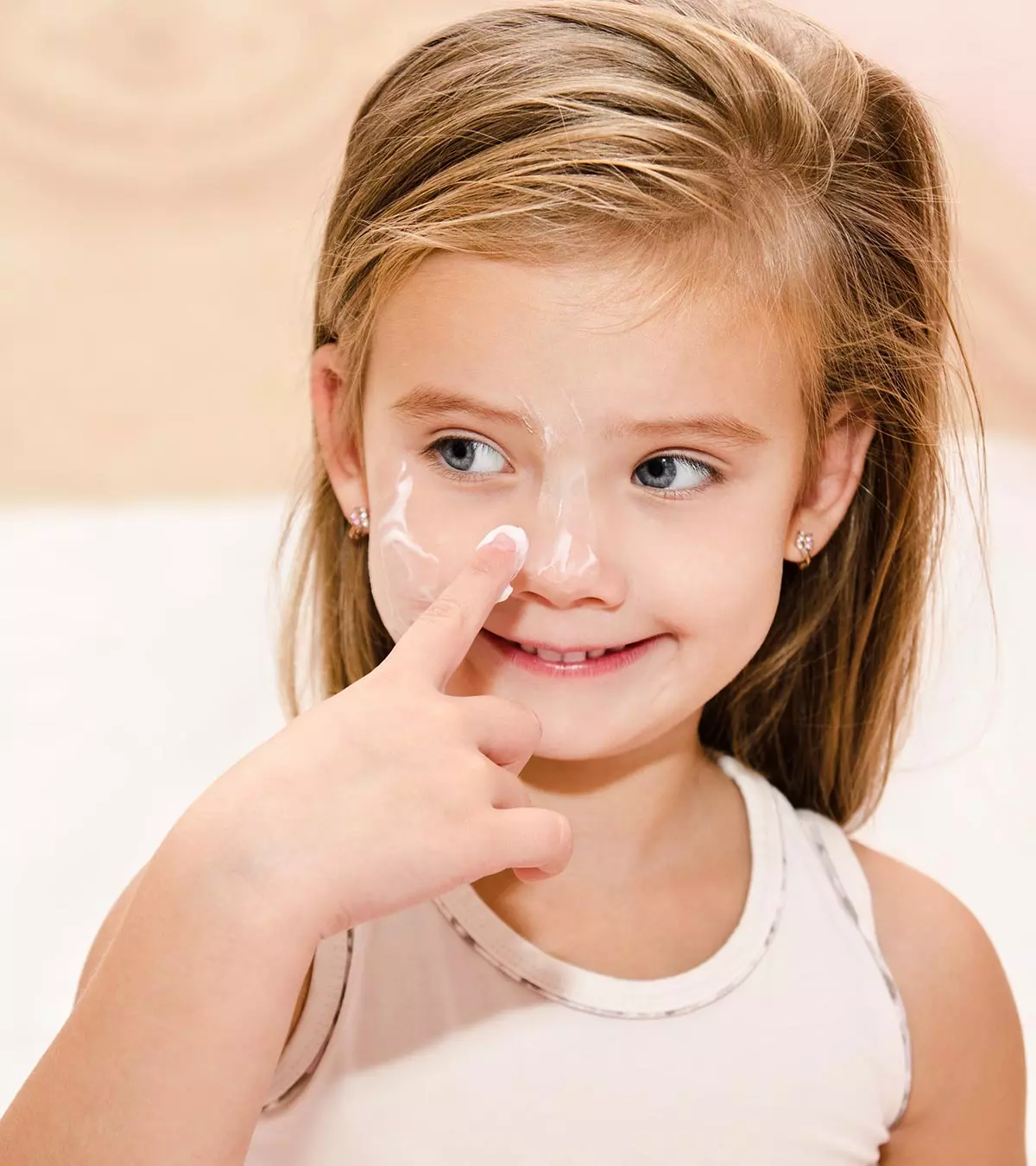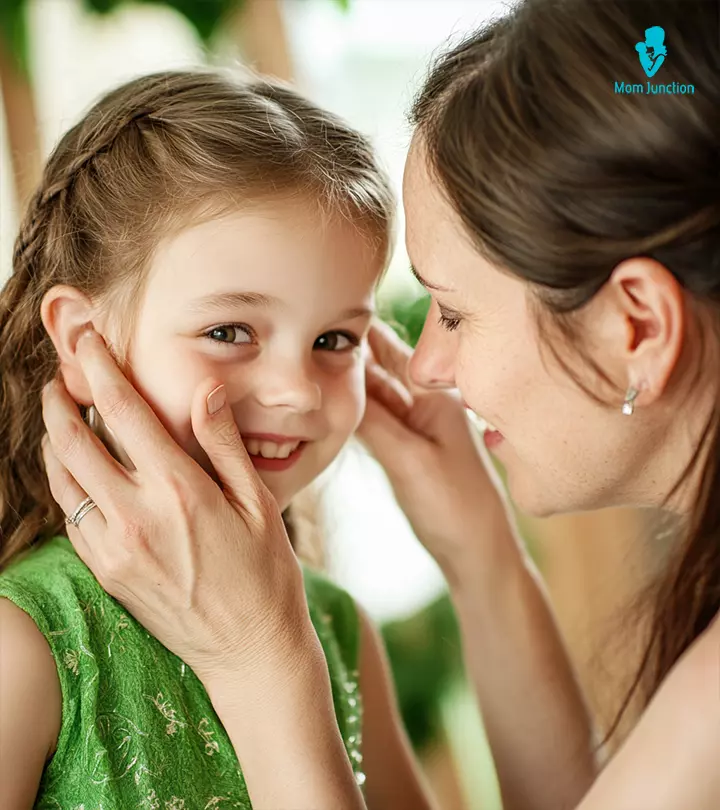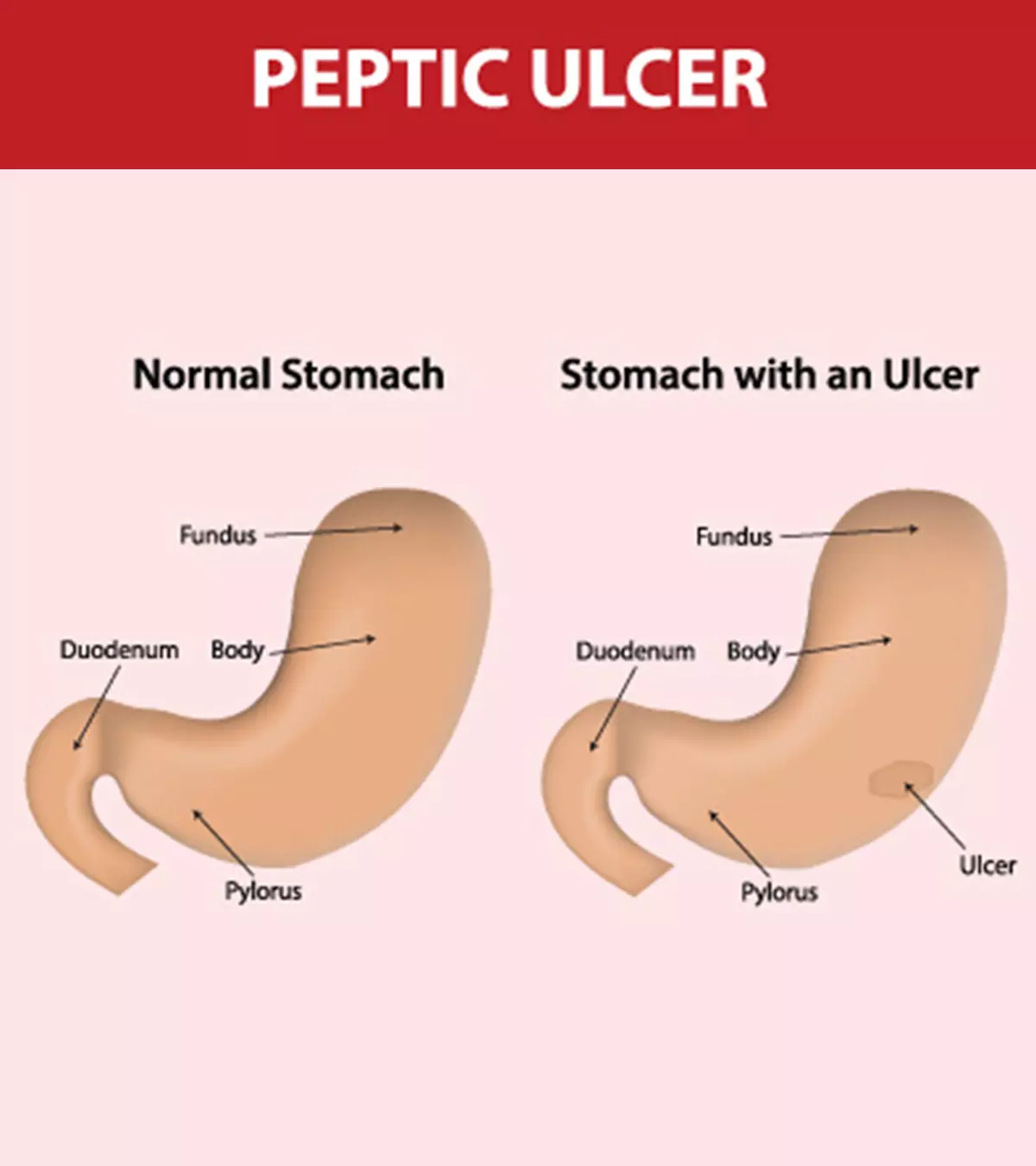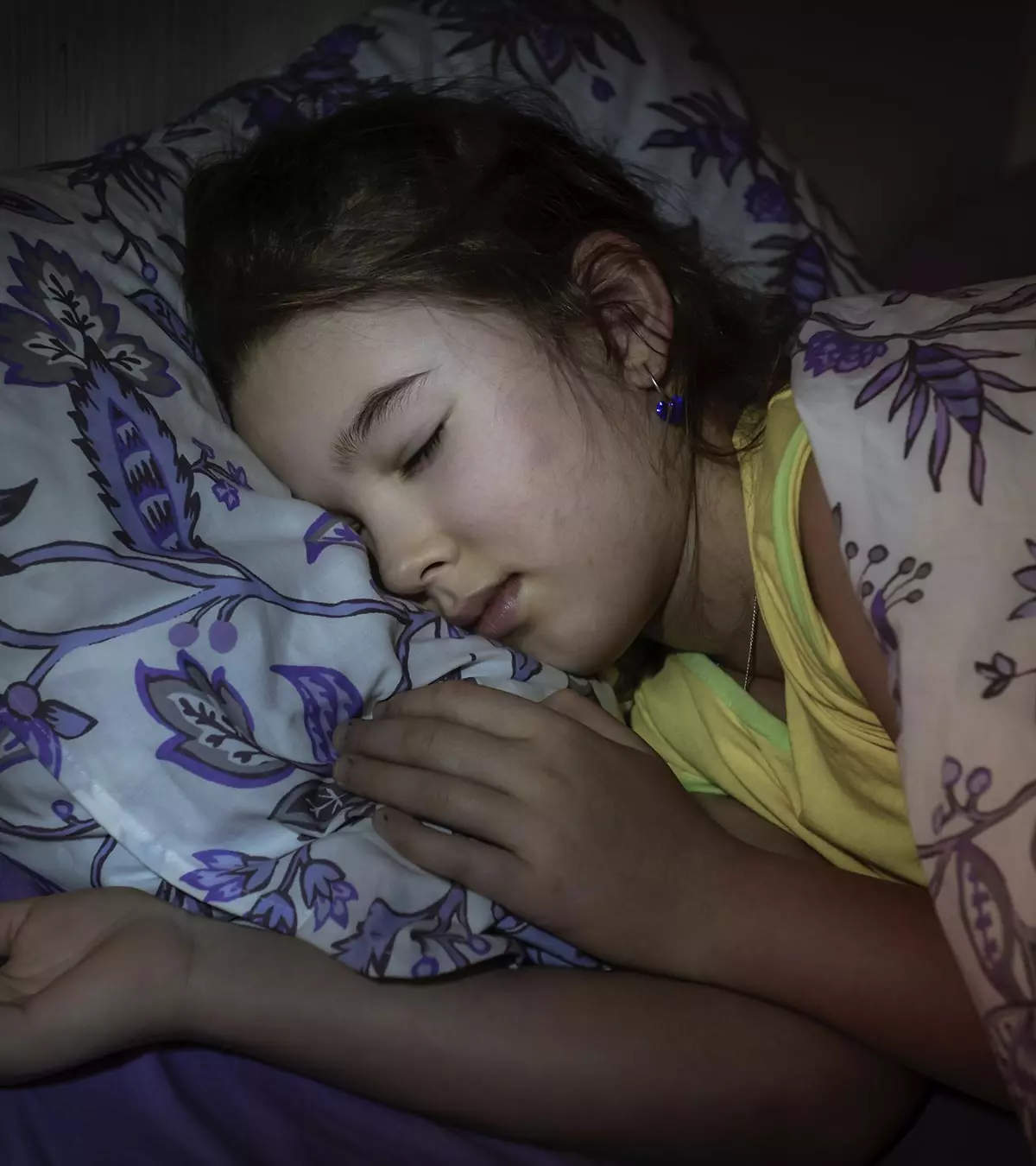
Image: Shutterstock
Sleep hyperhidrosis or night sweats in children can be due to various reasons. It is more common on warm days or when they wear heavy clothes, and thus there is no need to worry. However, if your child is sweating more than usual without any climatic or other reasons, you may seek a pediatrician consultation. Moreover, some health conditions such as hormonal issues and infections can cause night sweats in children. So, read on to know the causes, diagnosis, treatment, and tips to prevent night sweats in children.
Key Pointers
- Hormonal imbalances, bacterial infections, and sleep apnea can cause night sweats in children.
- Conditions such as gastroesophageal reflux disease, immunodeficiency, hypoglycemia, and hyperthyroidism can contribute to this condition.
- Night sweating can exhibit additional symptoms such as fever, cough, and breathing issues.
- A cold shower, sleeping on a cool mattress, keeping room temperature cool, and avoiding spicy food can help alleviate night sweats.
Possible Causes Of Night Sweats In Children And Teens
Various factors, including environmental, emotional, or physiological triggers, can influence night sweats in children. It’s important to consider these factors when assessing the severity of your child’s night sweats. Here, we have listed a few possible reasons, besides excess clothing and heat, that might cause night sweats in children.
- Sleep apnea: Nocturnal sweating or night sweats is one of the symptoms reported in children experiencing sleep apneaiA condition wherein breathing is repeatedly interrupted while a person is asleep. . This a condition where airflow is obstructed near the upper airway causing snoring. A study has found three times more nocturnal sweating in people with obstructive sleep apnea than in the general population (1). Being overweight and obese are risk factors for sleep apnea.
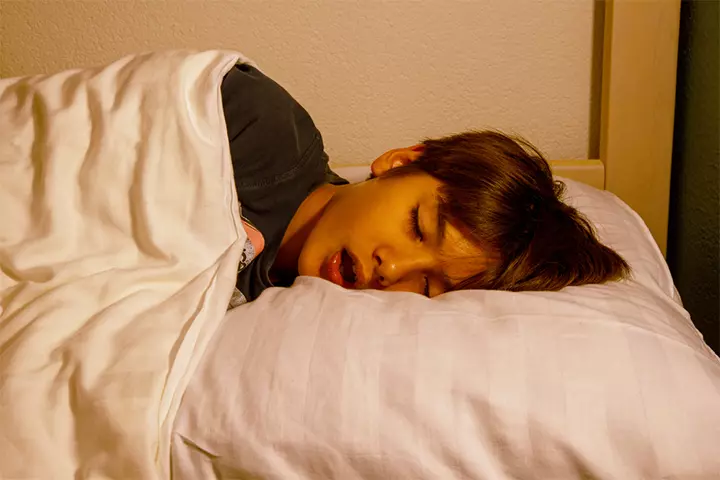
Image: Shutterstock
- Infections: Bacterial infections could also cause night sweats in children. According to the University of Rochester, night sweats could be a symptom of bacterial endocarditis (infection in the heart’s lining) (2). Nocturnal sweat is also among the symptoms of tuberculosis in children (3).
 Quick fact
Quick fact- Medications: Certain medications such as antipyretics, antihypertensives, and others may cause night sweating in adults (4). However, it is not known if these medicines cause night sweating or localized or generalized excessive sweating (diaphoresis) among children.
- Other conditions: Some other conditions that may cause night sweats are gastroesophageal reflux diseases, hyperthyroidism, immunodeficiencyiA state in which the immune system’s ability to fight diseases and infections reduces. , and hypoglycemiaiA condition when the blood sugar drops below the normal levels. (4). But there is inadequate research to connect these conditions to sweating at night.
 Quick fact
Quick factIn some cases, night sweating may occur due to nightmares and immune system disorders. Neurological disorders, such as autonomic neuropathy, are also associated with night sweats.
While night sweating is a symptom of an underlying health condition or illness, it is important to also pay attention to other symptoms that could indicate that the child is unwell.
Symptoms And Diagnosis Of Night Sweats In Children
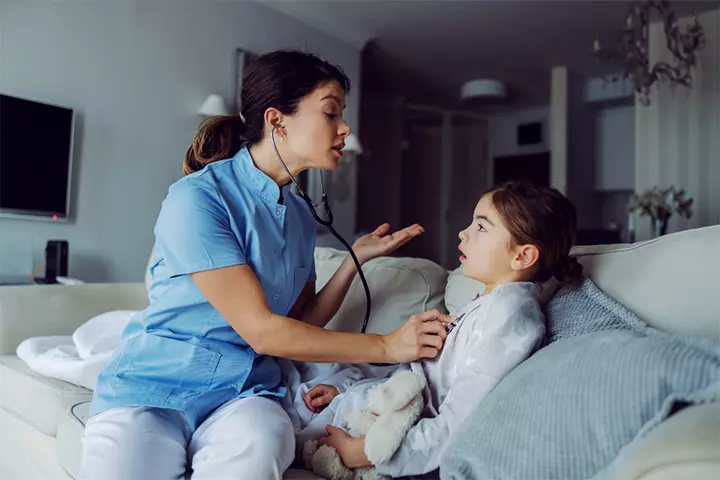
Image: Shutterstock
Along with night sweating, some children may have symptoms such as a fever, cough, discomfort while sleeping, and breathing issues. If these prolong for a long while, then take your child to the doctor. A physician can diagnose the cause of night sweats based on the child’s medical history, physical examination, and overall health.
Parents can take some measures at home to make a child with night sweats feel comfortable.
How To Help Your Child Deal With Night Sweat?
The following steps may help the child feel better and stop the night sweating.
- Keep the temperature of the room cooler. You may switch on the fan or keep the windows open or switch on the AC at a comfortable temperature.
- You may keep an ice pack under the pillow of your child if the weather is hot.
- A cold shower before sleeping may help.
- Drinking cold water can help avoid dehydration and may help maintain body temperature.
- Avoiding spicy food before sleeping may help maintain body temperature.
- Apply a wet cloth on the forehead of the child during the night.
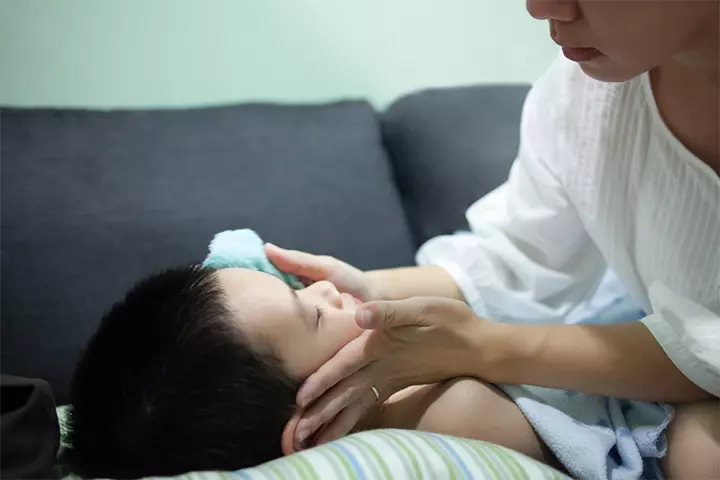
Image: Shutterstock
- You may get a cool mattress for your child and replace heavy bed sheets and comforters with light ones.
- Dress the child in light, breathable fabrics to prevent overheating.
If the child seems unwell or the night sweating continues to be in excess, then consult a physician.
In the next section, we address a few common questions asked about night sweating in children.
Frequently Asked Questions
1. Does cancer cause night sweats in children?
Some types of cancers might cause night sweats. For instance, night sweats are among the symptoms of Hodgkin’s diseaseiA type of cancer affecting the lymphatic system that originates from a specific white blood cell (lymphocytes) type. and Non-Hodgkin’s lymphoma, both types of cancer (5). Do note there are several other significant symptoms of cancer, and the occurrence of night sweats alone does not point to cancer.
2. Does childhood leukemia cause night sweats?
Night sweats are among the symptoms of childhood leukemia but are not the only symptom of the condition (6) Some other more prominent signs include irritability, weakness, weight loss, frequent infections, unusual bleeding, chills, flashes, and lumps in certain parts of the body.
3. Does anxiety cause night sweats?
According to Harvard Health Publishing, sweating is among the symptoms of anxiety in children (7). However, it is not known if sweating includes night sweats. There are no studies that connect children’s anxiety to night sweats.
4. Do children with diabetes sweat a lot?
Excessive sweating in children or hyperhidrosis can also occur due to diabetes. However, this mostly occurs during the early adulthood stages (8).
Medical conditions such as hormonal imbalances, medications, clothing, and climatic conditions can be reasons for night sweats in children. Rarely, anxiety and serious health conditions such as leukemia can cause sweating in the night hours. You may look for other symptoms with night sweating, such as fever, breathing problems, or cough. Preventive measures such as keeping the room cooler, avoiding spicy foods, drinking cold water, or taking cold showers before sleep may help some children. It is recommended to seek medical care if the symptoms persist regardless of any concerning symptoms.
Infographic: Helpful Ways To Stop Night-Time Sweating In Children
Night sweats in children may be common during hot weather or when they are dressed heavily. However, if you feel that your child’s night-time sweating is obstructing their sleep routine, you may try these helpful tricks to control night sweats in them. Illustration: Momjunction Design Team
Illustration: Night Sweats In Children: Causes Symptoms And Treatment
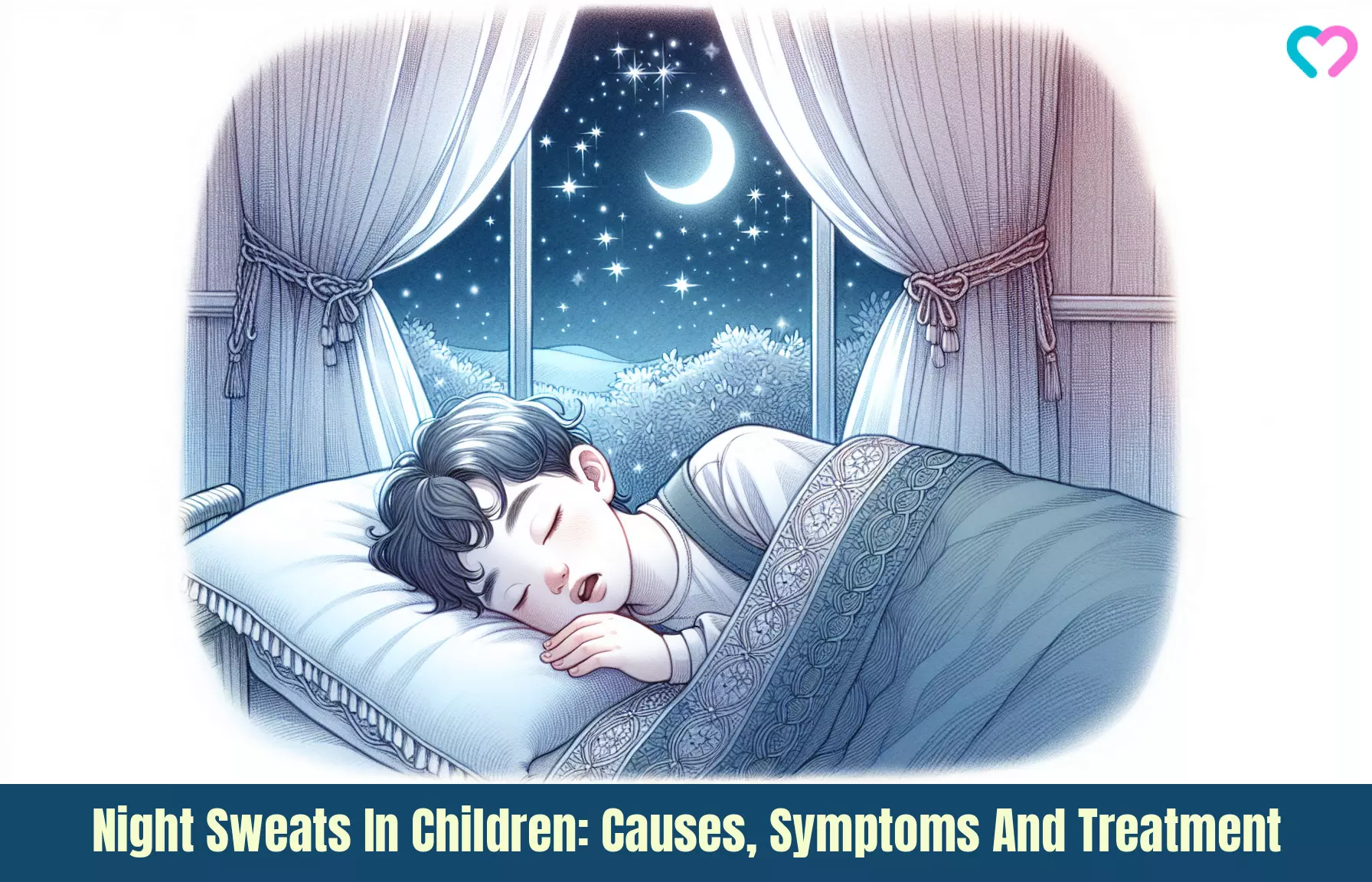
Image: Dall·E/MomJunction Design Team
Is your baby drenched in sleep-time sweat without fever? Decode the potential causes and discover remedies in this enlightening video, addressing concerns for your little one.
References
1. E. S. Arnardottir et al.; Nocturnal sweating – a common symptom of obstructive sleep apnoea: the Icelandic sleep apnoea cohort; Royal College of Physicians
2. Bacterial Endocarditis in Children; University of Rochester
3. Tuberculosis Symptoms & Causes; Boston Children’s Hospital
4. A. J. Viera, M. M. Bond, and S. W Yates; Diagnosing night sweats; American Family Physician (2003)
5. Symptoms of Childhood Cancers; healthychildren.org
6. Childhood Leukemias; American Childhood Cancer Organization
7. F. Coltrera; Anxiety in Children; Harvard Health Publishing (2018)
8. Hyperhidrosis; Riley Children’s Health
Community Experiences
Join the conversation and become a part of our nurturing community! Share your stories, experiences, and insights to connect with fellow parents.
Read full bio of Dr. Shashidhar A
Read full bio of Dr Bisny T. Joseph
Read full bio of Swati Patwal
Read full bio of Anindita Ghatak








